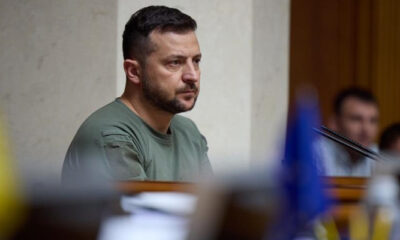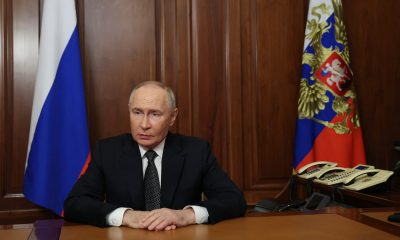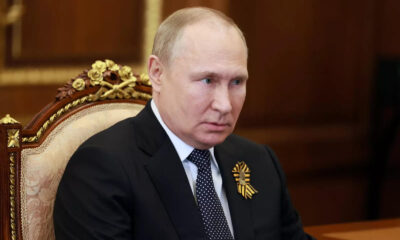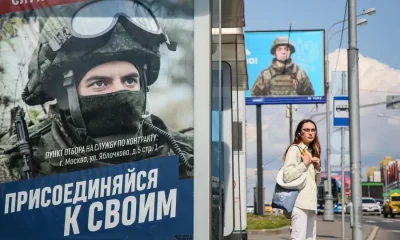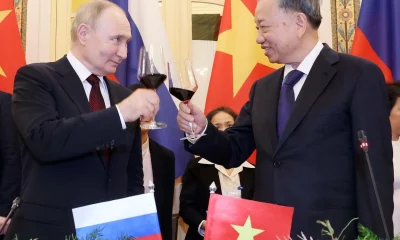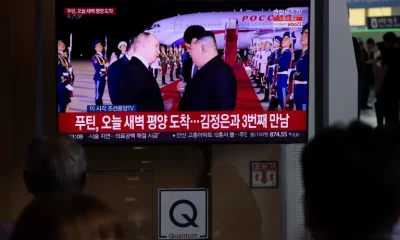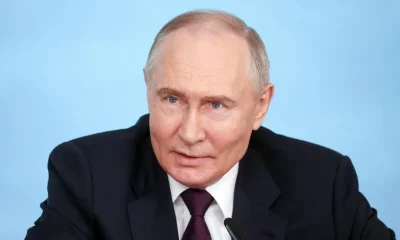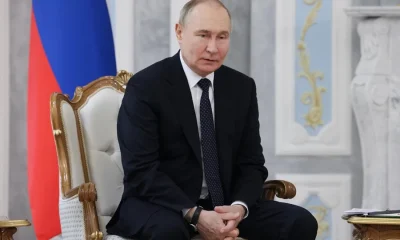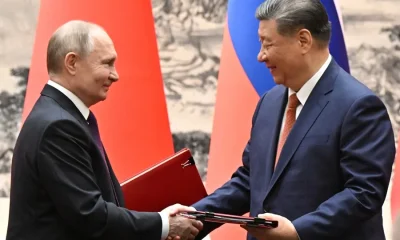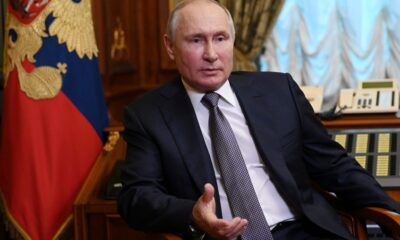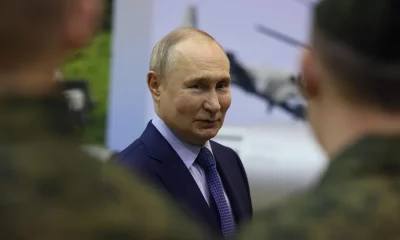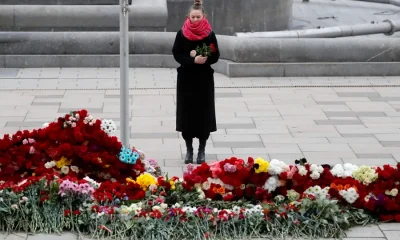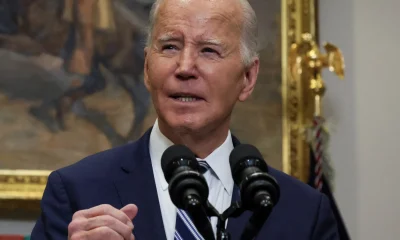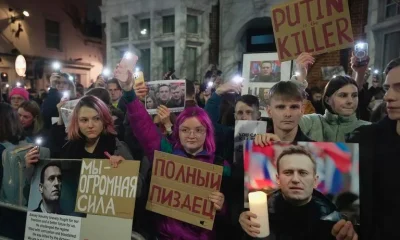International
Putin prepares for a long war with a change of defense minister
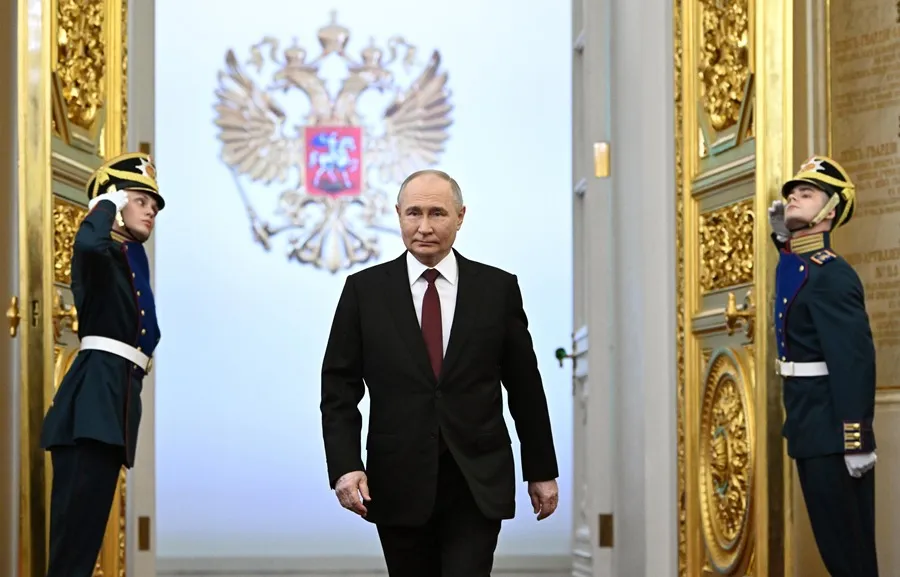
Russian President Vladimir Putin is preparing for a long war with Ukraine and the West, which would be due to his unexpected decision to replace his faithful Minister of Defense, Sergei Shoigu, with an economist who will be in charge of modernizing the military industry.
“It is your right, if you want to (solve the crisis) on the battlefield, because it will be on the battlefield,” Sergei Lavrov, Russian Foreign Minister, said on Monday, when speaking before the International Affairs Committee of the Russian Senate.
The information bomb that exploded on Sunday night had a greater impact because of the name of its substitute, the gray economist Andrei Belousov, in charge of the Government for the production of drones, an aspect in which Kiev has a clear advantage.
Belousov, whose candidacy will be endorsed on Tuesday by the Senate, will now have to manage a war economy with a defense budget of 6.7%, similar to that of the USSR in the last years of the Cold War.
Putin always defended the criticism of Shoigu, who was vilified by the absence of a clear strategy on the battlefield, especially since the campaign stalled in July 2022.
Shoigu, who in twelve years in office also led the military operation in Syria, played a very useful role for the Kremlin, since he served as a parapet against attacks by hawks such as the late founder of the Wagner company, Yevgeny Prigozhin, who accused him of “criminal negligence.”
The Russian leader made changes in the generalate after the withdrawals of Kherson and Kharkov, and the armed rebellion of Prigozhin in June 2023, but had patience with Shoigu.
What he didn’t forgive was corruption. Shoigu’s right-hand man, Deputy Defense Minister Timur Ivanov, was arrested on April 23 after being accused of large-scale corruption.
“The cleaning has begun in the Ministry of Defense, but it will continue,” said Sergey Mironov, a social democratic leader and friend of Prigozhin.
According to experts, since then the fate of the Minister of Defense was cast. He said goodbye when he directed the Victory Day military stop over Nazi Germany in the Red Square on May 9.
All Russia’s defense ministers since Putin arrived at the Kremlin in 2000 have been civilians, but Belousov was a more than unlikely candidate, since he has no military experience, according to the press.
In fact, in his first public appearance on Monday before the Senate defense and security committee, Belousov answered questions about the social problems faced by soldiers when they return from the front.
“He is a civilian, he is not a soldier. The military actions, the special military operation, the command, is directed by the General Staff under the command of the Supreme Commander. There is no change here, the work continues. No one should be worried,” said Valentina Matviyenko, president of the Senate.
It is an open secret that it is Putin and the Chief of Staff, Valeri Guerásimov, who set the military strategy and priorities on the battlefield.
The change in Defense coincides with the current Russian offensive in the Donbas and in the northeastern region of Kharkov, where Russian troops have opened a second front by conquering several Ukrainian localities.
Putin’s decision, a little friend of the purges within the government, adds to the surprising replacement of Nikolai Patrushev, one of the most influential figures in the hard core of the Kremlin.
Pátrushev, one of the ideologues of the narrative that Ukraine has no right to exist, ceased to be secretary of the Security Council, since he will now assume Shoigu.
The risk of technocrats like Belousov, not always supporters of the use of force, is compensated by their effective management of resources and their limited fondness for conspiracies, as happened with the generals who supported the Prigozhin uprising.
In fact, the new minister will have to strengthen the links between the Armed Forces and the defense industry, which will be the locomotive of the economy, since the victory in the war and the viability of social programs depends on it.
The weapons factories have hired more than half a million people “in just over a year,” as the new first deputy prime minister, Denis Manturov, admitted today.
According to the Russian press in exile and the Institute for the Study of War, everything indicates that Putin is preparing for a long military campaign that will require very careful management of state resources, as long as oil prices are above $60.
International
Claudia Sheinbaum: Operation Against ‘El Mencho’ Was Based on Pending Arrest Warrants

Mexico’s President Claudia Sheinbaum on Wednesday rejected claims that the military operation that resulted in the death of Nemesio Oseguera Cervantes, known as “El Mencho,” leader of the Jalisco New Generation Cartel (CJNG), was carried out under pressure from the United States government.
Sheinbaum explained that the deployment of federal forces was aimed at executing outstanding arrest warrants against Oseguera Cervantes, who was considered one of the most wanted criminals in both Mexico and the United States.
“That was not the objective (to ease pressure from the United States). It is very important, and I want to repeat it. This individual had an arrest warrant, or several,” Sheinbaum said, referring to the operation conducted on February 22.
According to the president, the initial goal was to capture Oseguera Cervantes, but military forces responded after coming under attack during the intervention.
“The operation was to detain him. The problem is that they were attacked — the Secretariat of National Defense — and they responded at that moment,” she said.
The president insisted that the action was not carried out in response to external demands, although she acknowledged intelligence cooperation with the United States.
“It was not done in any way because of pressure from the United States, not at all. Of course, there was intelligence information from the United States that was used specifically,” she concluded.
International
Spain Denies Any Agreement to Cooperate with U.S. Military in Iran Operations
International
White House Says Spain Agrees to Cooperate with U.S. Military After Trump Threatens Trade Embargo

White House Press Secretary Karoline Leavitt said Wednesday that Spain has agreed “in recent hours” to cooperate with the U.S. military, following President Donald Trump’s threat to impose a trade embargo on Madrid.
Trump had warned of potential commercial measures after Spain reportedly refused to allow the Pentagon to use facilities at Spanish military bases for operations related to Iran.
“With respect to Spain, I think you heard the president’s message yesterday loud and clear, and I understand that in recent hours they have agreed to cooperate with the United States military,” Leavitt said during a press briefing.
She added that the U.S. military is currently coordinating with its counterparts in Spain. However, the president expects broader support.
“The president expects that all of Europe, all of our European allies, of course, will cooperate in this important mission — not only for the United States, but also for Europe,” Leavitt said.
Her remarks came in response to questions about Spain’s position and its role as a U.S. ally amid rising tensions surrounding operations involving Iran.
-

 International4 days ago
International4 days agoIran Reports 201 Dead, 747 Injured After U.S. and Israeli Strikes
-

 International3 days ago
International3 days agoBrazil’s Supreme Court Rejects Bolsonaro’s Bid for House Arrest
-

 International3 days ago
International3 days agoAnti-ICE Billboard Campaign Targets Immigration Spending in 31 U.S. Cities
-

 International2 days ago
International2 days agoSpain’s Prime Minister to Address Nation Amid Trump’s Trade Threats
-

 International4 days ago
International4 days agoPope Leo XIV Urges End to ‘Spiral of Violence’ in Middle East
-

 Sin categoría5 days ago
Sin categoría5 days agoTrump: ‘We Think It’s True’ Amid Claims Iran’s Supreme Leader Was Killed
-

 International5 days ago
International5 days agoSecurity Council to Hold Emergency Meeting on Middle East Crisis
-

 International3 days ago
International3 days agoTrump Warns of ‘Major Wave’ of Attacks as Iran Conflict Escalates
-

 International21 hours ago
International21 hours agoWhite House Says Spain Agrees to Cooperate with U.S. Military After Trump Threatens Trade Embargo
-

 International3 days ago
International3 days agoMexico Calls for Immediate Probe After National Dies in ICE Custody
-

 International2 days ago
International2 days agoNew York Announces First 2,000 Seats in Universal 2-K Program
-

 International21 hours ago
International21 hours agoSpain Denies Any Agreement to Cooperate with U.S. Military in Iran Operations
-

 Central America21 hours ago
Central America21 hours agoNicaragua Held Responsible for Harassment of Opposition Prosecutor and His Family
-

 International3 days ago
International3 days agoBolivia Orders Three Investigations Into Deadly Military Plane Crash
-

 International2 days ago
International2 days agoWarner Bros. Developing First ‘Game of Thrones’ Movie With ‘Andor’ Writer
-

 Central America3 days ago
Central America3 days agoPanama Canal Monitoring Trade as Middle East Conflict Disrupts Shipping
-

 Central America2 days ago
Central America2 days agoGuatemala’s Attorney General Fails in Bid for Top Court Seat Amid Corruption Allegations
-

 International21 hours ago
International21 hours agoClaudia Sheinbaum: Operation Against ‘El Mencho’ Was Based on Pending Arrest Warrants



























